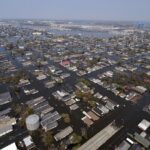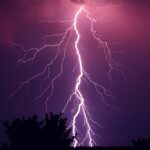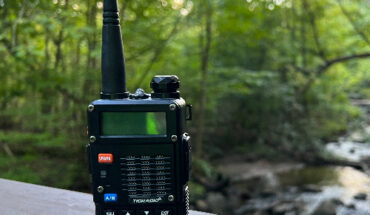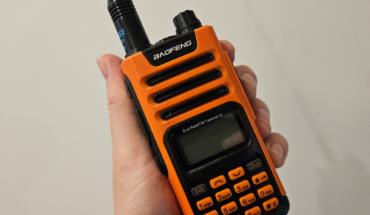In this article, we’ll discuss how to get an amateur radio license. Getting an amateur or ham radio license will help you be able to communicate during and after a disaster. Having communication ability is an important survival skill. While there are radio frequency bands that don’t require licensing, such as the FRS, amateur radio licenses allow you to use far more bands and radios with power, making it a great tool to have. You can communicate with amateur radio bands over great distances using repeaters.
Further, getting your Part 97 amateur radio license is a great way to learn about radio technology and to get involved in the amateur radio community. Amateur radio operators provide valuable emergency communications services and conduct scientific research. They can also communicate with other amateur radio operators around the world. You can even communicate with the International Space Station.
How To Get An Amateur Radio License
To get your Part 97 amateur radio license in the United States, you must pass an examination administered by a team of volunteer examiners (VEs). The VEs determine the license operator class for which you are qualified through the testing of your skills and abilities in operating an amateur station.
There are three license classes in the United States: Technician, General, and Extra. Each class has its own set of requirements and privileges.
Technician Class
For most people, technician class is enough for their needs. To qualify for the Technician class license, you must pass a 35-question multiple choice examination on basic amateur radio operating procedures and regulations. The examination covers topics such as:
- Basic radio theory
- Amateur radio bands and operating privileges
- Station operation and procedures
- Emergency communications
General Class
To qualify for the General class license, you must pass a 70-question multiple choice examination on more advanced amateur radio operating procedures and regulations. The examination covers topics such as:
- Advanced radio theory
- Amateur radio bands and operating privileges
- Station operation and procedures
- Emergency communications
Extra Class
To qualify for the Extra class license, you must pass a 50-question multiple choice examination on advanced amateur radio operating procedures and regulations, as well as electronics theory. The examination covers topics such as:
- Advanced radio theory
- Amateur radio bands and operating privileges
- Station operation and procedures
- Emergency communications
- Electronics theory
Finding a VE Team
Once you have studied for and are ready to take the amateur radio license examination, you need to find a VE team. You can find a VE team in your area by searching online or by contacting your local amateur radio club. The ARRL is a national organization that promotes and sponsors amateur or ham radio. You can find a complete list of VE’s on their website.
Taking the Examination
To take the examination, you will need to contact the VE team in advance to schedule an appointment. You will also need to bring the following with you to the examination:
- A valid government-issued photo ID
- The appropriate fee for the examination
- A completed FCC Form 605 (Application for Amateur Radio License)
The examination will be administered in a group setting and will take approximately two hours to complete. If you pass the examination, you will receive a certificate of successful completion from the VE team. Note that there are opportunities for remote testing-the VE’s have very strict processes but it is available.
Applying for Your License
Once you have passed the examination, you need to apply for your amateur radio license from the Federal Communications Commission (FCC). You can apply for your license online or by mail.
To apply for your license online, go to the FCC’s website and create an account. Once you have created an account, you can start the application process.
To apply for your license by mail, download and complete FCC Form 605. You can also request a copy of FCC Form 605 by calling the FCC at 1-888-CALL-FCC (1-888-225-5322).
Once you have completed the application process, you will need to pay a filing fee. The filing fee can be paid online or by mail.
Receiving Your License
Once the FCC has processed your application and received your filing fee, you will receive your amateur radio license in the mail. Your license will be valid for 10 years.
Tips for Passing the Amateur Radio License Examination
Here are some tips for passing the amateur radio license examination:
- Study the FCC’s amateur radio licensing manual. The manual is available online and from the FCC.
- Take a practice examination. There are many practice examinations available online and in books.
- Join an amateur radio club. Amateur radio clubs often offer classes and workshops to help people prepare for the examination.
- Find a mentor. An experienced amateur radio operator can help you study for the examination and answer your questions.
- Use Hamstudy.org because it’s a fantastic resource to learn about amateur radio.
Getting Involved in the Amateur Radio Community
Once you have received your amateur radio license, there are many ways to get involved in the amateur radio community. You can join a local amateur radio club, participate in amateur radio contests, or volunteer for emergency communications. Local search and rescue teams for instance, often require their team members to be amateur radio licensed.
Conclusion
Getting your amateur radio license is a great way to bolster your survival skills toolkit. Amateur radios can be used in emergency communications, and getting a a radio can be low cost or expensive, depending on how much investment you would like to make.
Reading More
For other survival skills you should have, check out our list of some of the best outdoor survival skills. Learn how to start a campfire with gopackandpaddle.com. As always, comment below with questions and we’ll respond!














